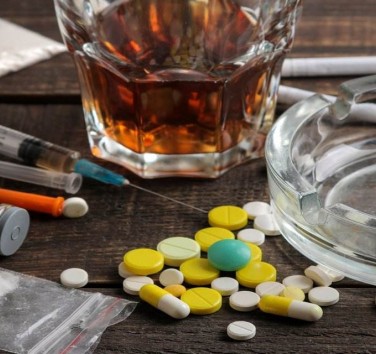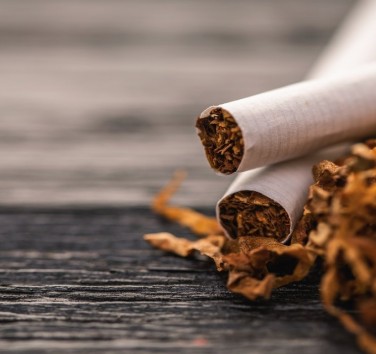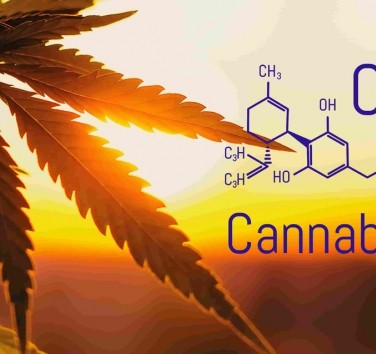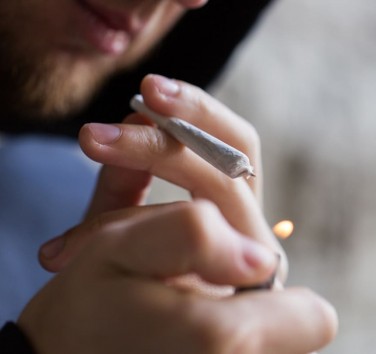Sommaire
- What is an addictive substance?
- How do we know if we are addicted?
- Who can fall into an addiction?
- At what point does an addiction make itself felt on an individual?
- The different risks related to a physical or psychological addiction
- Is CBD an addictive substance?
- Can CBD oil be addictive?
- Can CBD fight addiction?
- Does CBD help against other drugs?
What is an addictive substance?
First of all, before getting into the heart of the matter, we need to know what an addictive substance is and what its consequences are. An addictive substance is close to addiction, which is its main consequence. The latter is qualified by a brain pathology defined by a dependence on a substance or an activity
This definition is from a scientific and medical point of view, but it is important to know that different substances lead to an addiction such as nicotine, opiates, alcohol, cannabis and different drugs, while some addictions are not linked to substances. Among these, we can find the addiction to gambling, which affects all ages and strikes without warning
Of course, the definition of addiction varies from country to country and according to the beliefs of each laboratory or specialist, but according to the National Institute of Drug Abuse, the definition of addiction is as follows
“Addiction is a chronic, relapsing brain condition characterized by compulsive drug seeking and use, despite knowledge of its harmful consequences."
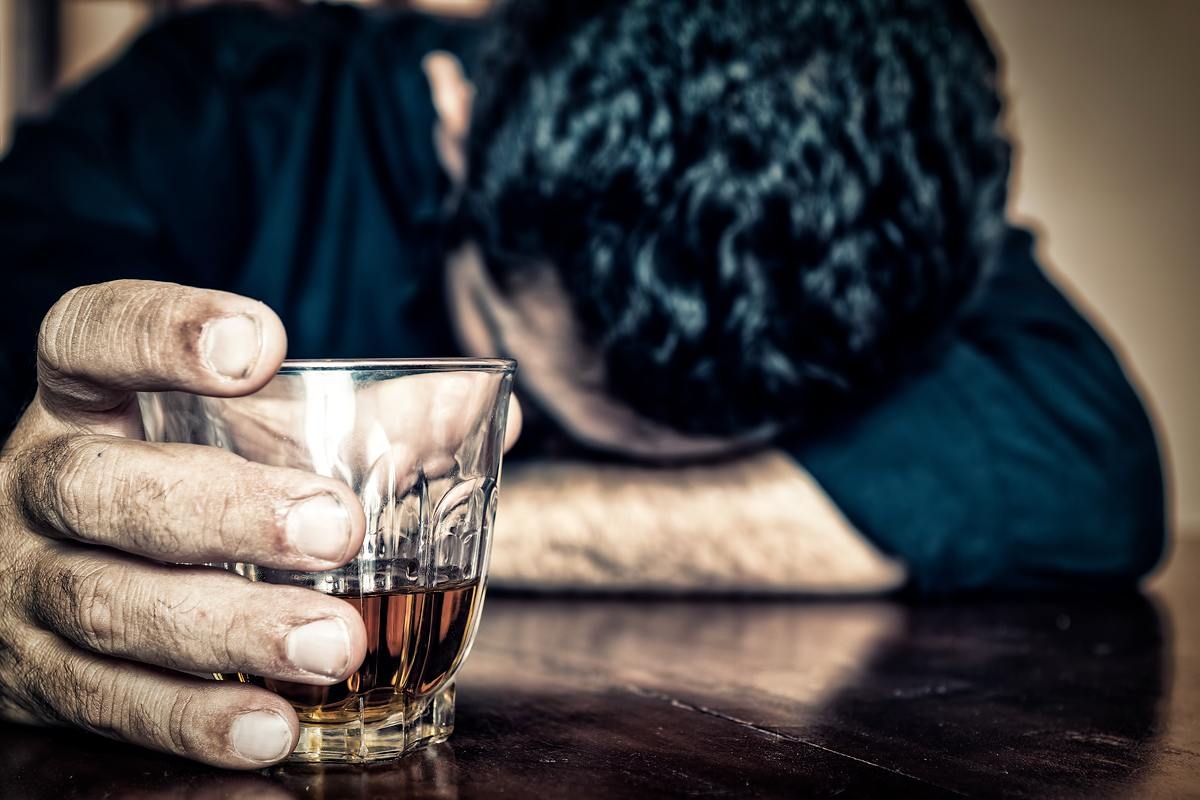
How do we know if we are addicted?
It is extremely important to know if we are addicted in order to get help and improve one's daily life while maintaining health and financial security. To know if you are addicted to a substance or not, the medical field uses two questionnaires to make a concrete and precise diagnosis. Let's look at the different questionnaires and their contents
The Diagnostic Manual of Mental Disorders
This questionnaire is based on eleven questions that can define if any addiction is present.
- Compelling need to use the substance or to gamble
- Loss of control over time related to substance use or gambling
- A lot of time spent looking for the substance or game
- Observed increase in tolerance to the substance used
- Presence of a withdrawal syndrome following voluntary or involuntary cessation of use
- Inability to fulfill important obligations
- Use even when there is a physical risk
- Personal or social problems
- Persistent desire or effort to decrease dosage
- Reduced activity in favour of gambling
- Continued use despite physical and psychological damage
On this test, if the user has the presence of two to three criteria, his or her addiction is mild, if it is four to five criteria, his or her addiction is moderate, while if it is six or more criteria, then the addiction is severe
The International Statistical Classification of Diseases and Health Problems
This questionnaire is developed by the WHO (World Health Organization) which has been in the news lately with the health crisis we are experiencing. The difference between this questionnaire and the second one is that you need to have at least three correlations identified in the last year. In addition, this questionnaire has only six questions that allow for a precise and thoughtful diagnosis
- A strong and compulsive desire to use a psychoactive substance
- Difficulty in controlling the use of the substance, such as initiation and frequency of use
- Withdrawal syndrome present when discontinuing use of a psychoactive substance and/or use of a related substance or the same substance to offset the withdrawal syndrome
- Evidence of adaptation of the subject to the psychoactive substance
- Abrupt cessation or gradual abandonment of other sources of pleasure and interest in the psychoactive substance and increase in the time and frequency of use of the same substance
- Continued use despite the psychological and physical damage to the user, especially if the user is aware of the risks involved in his or her addictive use
As you can see, this test is relatively short and allows you to establish a diagnosis according to your type of addiction. These examples are only informative and do not constitute medical expertise
But who can be addicted and which populations are at risk? We will see this together in the following lines

Who can fall into an addiction?
It is important to know that anyone can fall into an addiction, regardless of the type of addiction. However, many people are more likely to become addicted to certain substances, such as those whose parents smoke tobacco
These people, by seeing the gesture and the repetitiveness of smokers, can easily fall into this vicious circle by trying later, during adolescence, or sometimes earlier, to repeat this gesture. If we always take the example of tobacco, many people found this material bad at the first try, but afterwards, they are tempted to know if it tastes the same or not
It is important to know that there are individual factors that can encourage each individual to fall into an addiction. Among all the factors that represent an increased risk, we can find the following
- Age
- Gender
- Brain maturity
- Personality
- Mood
These risk factors come into play at any point in an individual's life, as an older person may fall into an addiction, other than drugs, as a result of a change in mood due to a tragic event or other event
There are other risk factors that can play a major role in their addiction which are initiation and male gender. For example, if an individual starts drinking in his teens, he is ten times more likely to become addicted to alcohol later on. Of course, these are just statistics and do not represent reality
Shy, withdrawn and anxious people are also very likely to become addicted in later years. Remember that an addiction is not only related to a drug or any other illicit product, but it can be sex, video games or gambling. However, these addictions, except for gambling, are not officially recognized as addictions because the lack of studies on this subject is still obvious
There is also an increased risk of addiction due to environmental factors, which play a major role in the life of an individual. For example, growing up in a stressful and disordered environment increases the risk of becoming addicted to any substance. We talked about tobacco smokers above, and a child who grows up in an environment surrounded by smokers is likely to smoke as a teenager, sometimes earlier, sometimes later
We will see now, when an addiction is felt.
At what point does an addiction make itself felt on an individual?
The answer to this question lies in your brain and body. In other words, the moment when an addiction starts to be felt is essentially based on your composition and therefore depends on each individual
It is also important to know that an addictive substance becomes more or less addictive depending on its intensity. For example, if you take a drug such as cocaine or crack, the addiction will be felt at the first intake or the following ones, but the addiction comes very quickly because these drugs offer a very high addictive potential
Regarding other addictions, such as gambling, they are felt after several days, or even several years because the need is very progressive and generally it is the lure of gain that is felt. In other words, if an individual wins a large sum of money at a game of chance, he will then try again later to win the same amount although the probability is very low
To give you an idea of the very slim chance of winning a game of chance that we all know about, such as the Lotto, here are some examples of things that are more likely to happen in your life
- You are more likely to get hit by an asteroid: 1/720,000
- You are more likely to find a four-leaf clover: 1/10,000
- You are more likely to be struck by lightning: 1/250,000
- You are more likely to die in an airplane: 1/11,000,000
Finally, your chance of winning the lottery is 1 in 13,983,816!
There are different risks linked to an addiction that can be various and varied. We will see this together

The different risks related to a physical or psychological addiction
There are different risks according to the different types of addiction. For example, an addiction to a drug carries different risks than an addiction to gambling. We will start with drugs
The risks linked to them are present from the beginning of the consumption with different effects that can be felt by the consumer
- Euphoria;
- Loss of control;
- Decreased stress;
- Disinhibition.
Of course, in addition to these immediate aspects, there are immediate risks that can become vital for consumers, such as overdoses or alcohol-related comas. These consequences are mainly present at the beginning of the consumption
It is important to know that the consequences can occur in the following days and become part of the daily life of the consumers. When it does, it can gradually invade the consumer's daily life and have a negative impact on personal, relational and professional life. In the worst cases, it can lead to divorce or break-up and dismissal
However, their negative effects do not stop there, as they can persist throughout life if the consumer does not stop in time. In particular, they can affect the health of the individual, which can cause great damage to the brain and body of the individual
We can observe psychic changes in some drug users, such as mood changes, memory problems, attention problems. These various consequences are "slight" and sometimes there can be more serious disorders such as the development of certain serious mental illnesses
In addition, the ways in which certain substances are consumed can cause health risks for individuals. For example, a tobacco or cannabis smoker has a high chance of developing lung cancer, while an individual who goes to use a syringe for consumption can get diseases such as AIDS or skin necrosis
There are also financial risks, as the more a user becomes interested in a substance, the more doses they will need and this can cause a significant financial drain on the user
But is CBD an addictive substance regardless of the method of consumption? Let's see this together in the next few lines
Is CBD an addictive substance?
First of all, it is necessary to recall what CBD is before answering this question. It is important to know that CBD is a molecule naturally present in cannabis and more specifically in the hemp plant. This molecule is not psychotropic unlike another molecule present in large quantities in recreational cannabis which is none other than THC
The latter is the reason why cannabis is considered illegal in many countries, France included, as it is the main cause of accidents related to the consumption of this substance. It is also important to know that the CBD products that you can find on 321CBD are in accordance with French legislation, because they have a THC rate lower than 0.2%, which does not cause psychotropic effects
CBD seems to have beneficial effects for our body and our health that we will list
- Helps eliminate anxiety
- Reduces stress
- Promotes sleep
- Allows to regulate hunger
- Helps to avoid nausea and intestinal pain
- Has anti-inflammatory effects.
These effects can vary from one person to another, because we are not all equal in front of this molecule and each body reacts differently. Thus, it will be possible to feel undesirable effects if you abuse CBD too much to feel its effects such as nausea and dizziness. As CBD is not a psychotropic drug, it does not act on the nervous system, which excludes any interaction with certain receptors responsible for the addictive feeling felt by some recreational cannabis users
Concerning the question about addiction, CBD does not cause addiction to its consumers since the molecule acts with other receptors in the body that we will see together
- CB1 receptors, which are located in the brain and in the nervous system
- CB2 receptors, which are located in the organs and in the immune system
When we talk about CB1 receptors located in the brain and nervous system, it is important to know that these receptors do not constitute the nervous system and the brain, but they are just present there. Although CBD acts in the brain by activating certain hormones such as serotonin, it does not play an essential role and does not change moods or certain neuronal functions
In other words, when a CBD consumer is going to consume this molecule, he will not have any "high" effects or in other words, the feeling of "getting high" which is a real advantage and especially a big difference between the two molecules present in cannabis
But given the increasing diversity of CBD products available on the French and global market, some consumers may wonder if the mode of consumption can cause an addiction
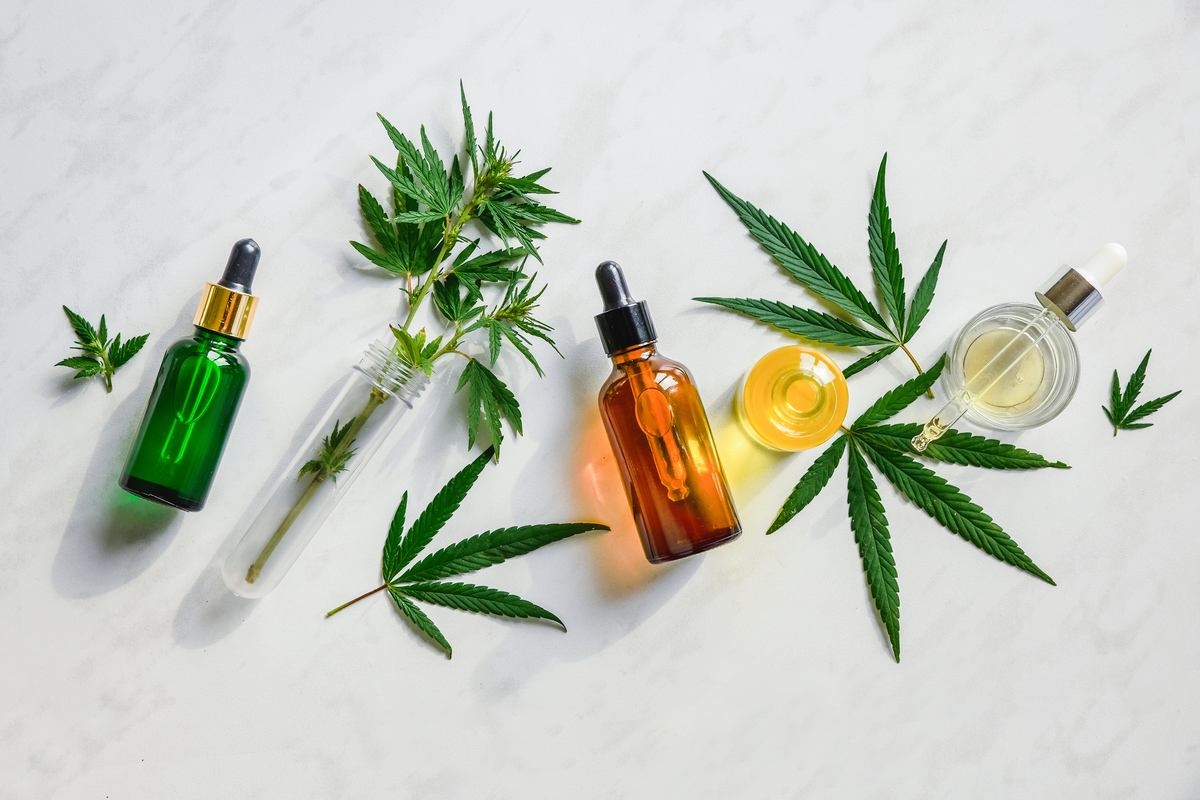
Can CBD oil be addictive?
Regarding this mode of consumption, we will explain how it works in order to better understand it. You should know that CBD oil is certainly one of the most widespread modes of consumption in the world because it has several advantages
For example, it is more discreet than CBD flower or resin and one of its other strong points is that it is not odorous, which is an advantage when you are surrounded by people in certain situations. To consume it, there are two methods that we will see together
The sublingual method
This method is very popular and represents the best way to administer CBD with oil. To perform this method, you simply place a few drops under your tongue and hold your tongue closed down for about 30-60 seconds before swallowing
The benefits of this method are based on the fact that under the tongue, we all have a large vein and mucous membranes that can suck the CBD directly into the bloodstream. This is especially to avoid the first pass effect that occurs when the oil goes directly into the liver and the liver, through these enzymes, eliminates a certain percentage of CBD
Swallowing the oil directly
This method is effective, although less so than the sublingual method. Indeed, when you swallow the oil directly without placing it under the tongue, it will go directly into the digestive system and into the liver, which will play the wrong role because of these enzymes and eliminate a percentage of CBD
This will limit the effects of CBD, because there will be less in the blood because of the liver, which can lead to overconsumption or disappointment of the customer with the product
Now, let's see if CBD oil can pose an addiction risk to the customer
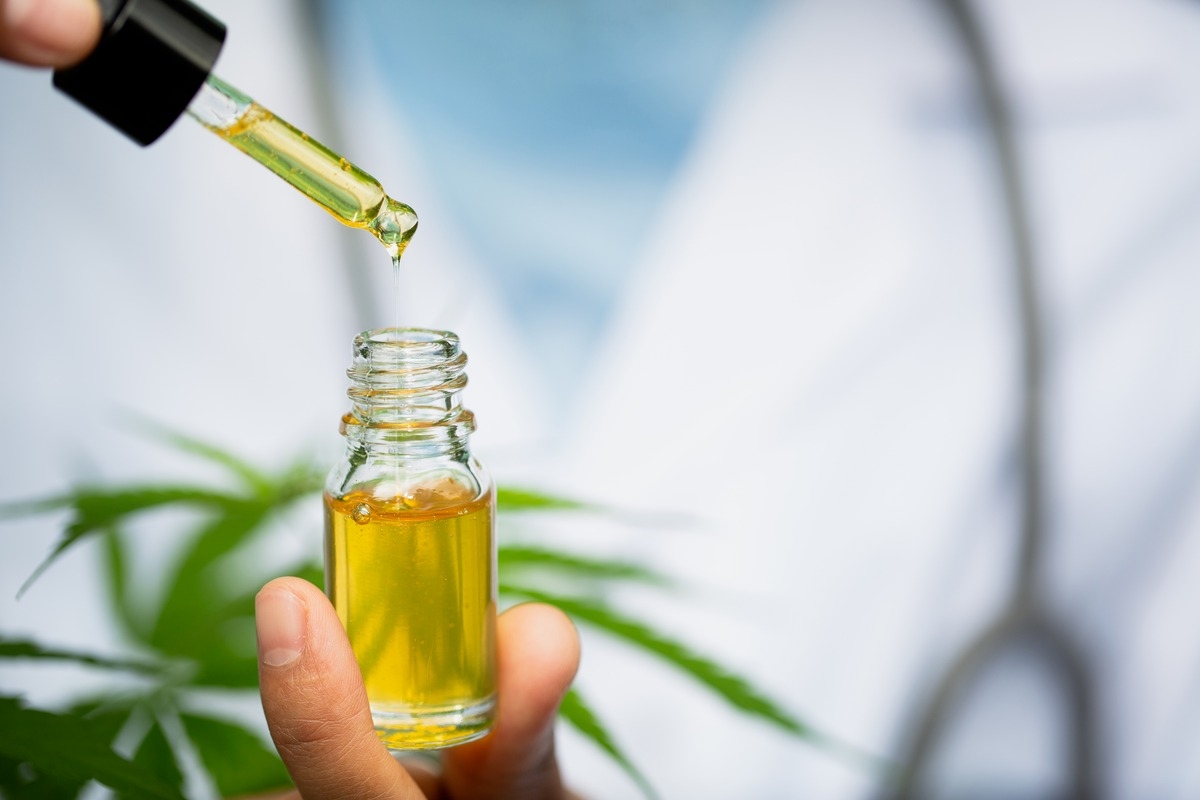
Is CBD oil addictive?
According to the WHO, CBD is not addictive because it does not react with the brain when consumed. CBD also does not pose any risk of causing abuse and addiction potential. This is true for all CBD products on the market, be it flowers, resin, oil or even CBD candy
But there are two main types of CBD oil, such as full spectrum CBD oil and regular CBD oil. The full spectrum oil is very different from the other type, as it represents more benefits
For example, it contains many more molecules than just CBD, such as dozens of other molecules like CBN, CBG and CBC that play an important role in the effects of CBD and also enhance the effects of this molecule. In addition, just like flowers and other CBD products, this full spectrum oil may contain terpenes and flavonoids that also play a very interesting role in the initial effects of CBD
The biggest difference lies in the fact that full spectrum CBD oil would allow the consumer to benefit from an entourage effect which is characterized by the action generated by all the components of this oil
Concerning the risk of causing an addiction to the consumer, the information is less numerous and the results reveal this lack of information because they are not certain. Indeed, in the study carried out on CBD, only one molecule was under a bell, whereas in the full spectrum oil, several tens of molecules as well as terpenes and flavonoids are present. Their interaction could cause positive and negative effects according to the consumers
Nevertheless, and still according to the same studies, it would seem that the risk of causing an addiction would be very low, even non-existent, but it is important to remember that there is a lack of studies on this oil and its components
At 321CBD, we pay attention to the modes of production by preferring an exemplary method of production in order to offer the best products to our customers. Thus, you will be able to enjoy our CBD oils oils that represent this responsible production method
As CBD is not addictive and does not represent any risk of abuse, would it be possible to use it to fight an addiction?
Can CBD fight addiction?
This question may make some people smile since CBD is derived from cannabis and more precisely, from the hemp plant, but it would seem that CBD is extremely effective in fighting addiction
Be careful though, this issue is still quite underdeveloped, like many topics around CBD by the way, so we will have to take it with a pinch of salt and wait for further studies and on larger data
For this we will start with a study conducted over a year between May 28, 2014 and August 12, 2015 in which, 48 participants were selected to receive at random, a placebo, 200 mg of CBD, 400 mg and 800 mg. In this first study, the 200 mg dose was found to be ineffective. A second stage of this same study took place between May 24, 2016 and January 12, 2017 in which 34 participants received placebo, 400 mg of CBD, and 800 mg. The results of this study show that the 400 mg and 800 mg doses prove to be interesting and effective in order to fight against cannabis addiction. Moreover, no side effects were reported, which ensures that CBD is a safe product to use
This study was conducted on cannabis for a simple and good reason. Indeed, this illicit substance is by far the first substance consumed in France, ahead of all drugs available on the territory. For example, in 2016, approximately 42% of adults aged between 18 and 65 years old declared having already consumed cannabis during their life. Among this population, men are in the majority ( 51% ) compared to women ( 34% )
Demographic factors also play an important role, as well as peer pressure. For example, a young person who is surrounded by people who use this substance is more likely to use cannabis in turn
Does CBD help against other drugs?
There are many rumours that CBD could help against certain substances or drugs. But it should be noted that here again, there is a lack of studies and this information should be taken with caution
CBD against drug addiction
Addiction affects many people and also gradually destroys their lives. CBD seems to be able to help them by eliminating the reward effect following the administration of a dose of any product as well as the positive effect associated with this administration
In addition, the risk of relapse also seems to be reduced thanks to the various effects of CBD
CBD against opiates
These illicit products are commonplace and can even be bought in pharmacies over the counter and without a prescription, which makes them a real scourge for people's daily lives. But CBD also seems to be able to play its card against this addiction, since it can avoid certain withdrawal symptoms such as anxiety which is a real scourge in the daily lives of consumers
A study was conducted to determine the consequences of CBD consumption and the various benefits of this molecule on opiate withdrawal. In this study, one group of mice was given morphine and another group was given a saline solution. The results show that CBD could reduce the amount of opiates consumed by about 10 mg per kilogram by attacking the rewarding effects of consumption
CBD against nicotine
Nicotine is very present in the daily life of many French, because being considered a drug, but being on sale in tobacco shops, it concerns millions of French. CBD would seem to have an important role in the fight against this addiction
For example, the consumption of tobacco, which is linked to that of nicotine, has been reduced to 40% in users of CBD by inhalation while in people who received placebos, consumption has not decreased

But according to some studies, CBD, through its interaction with the endocannabinoid system present in the body, would seem to reduce the rewarding sensation associated with smoking a cigarette, which would reduce consumption in the future by permanently removing this sensation.
As it has been said, CBD is not a medicine, but should be considered as a dietary supplement to be consumed alongside a balanced diet and a healthy and simple lifestyle. Before any consumption, it is preferable to go and see your doctor in order to establish what would be the best initial treatment.
The studies mentioned above must also be taken with a grain of salt, as there is a significant lack of information on this subject and it is difficult to draw any conclusions today.



